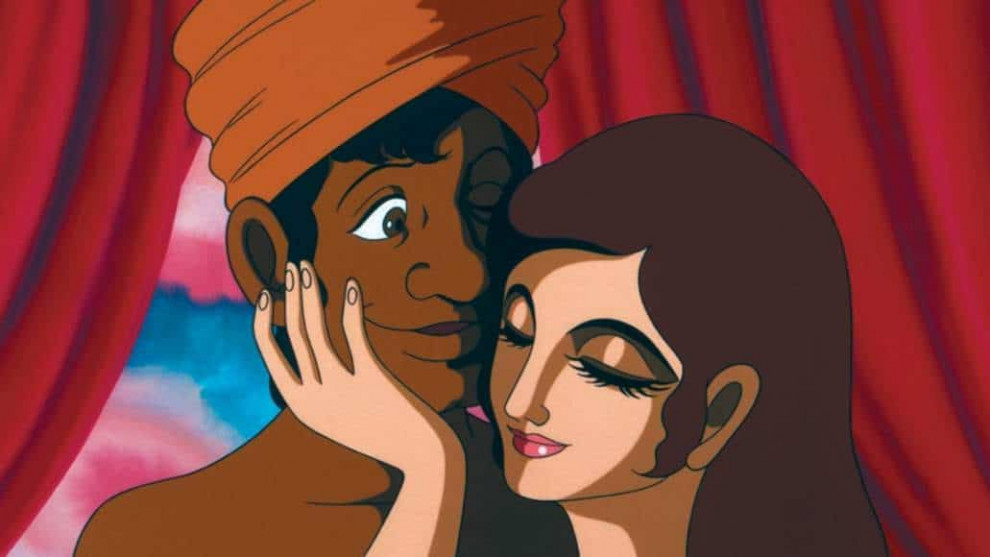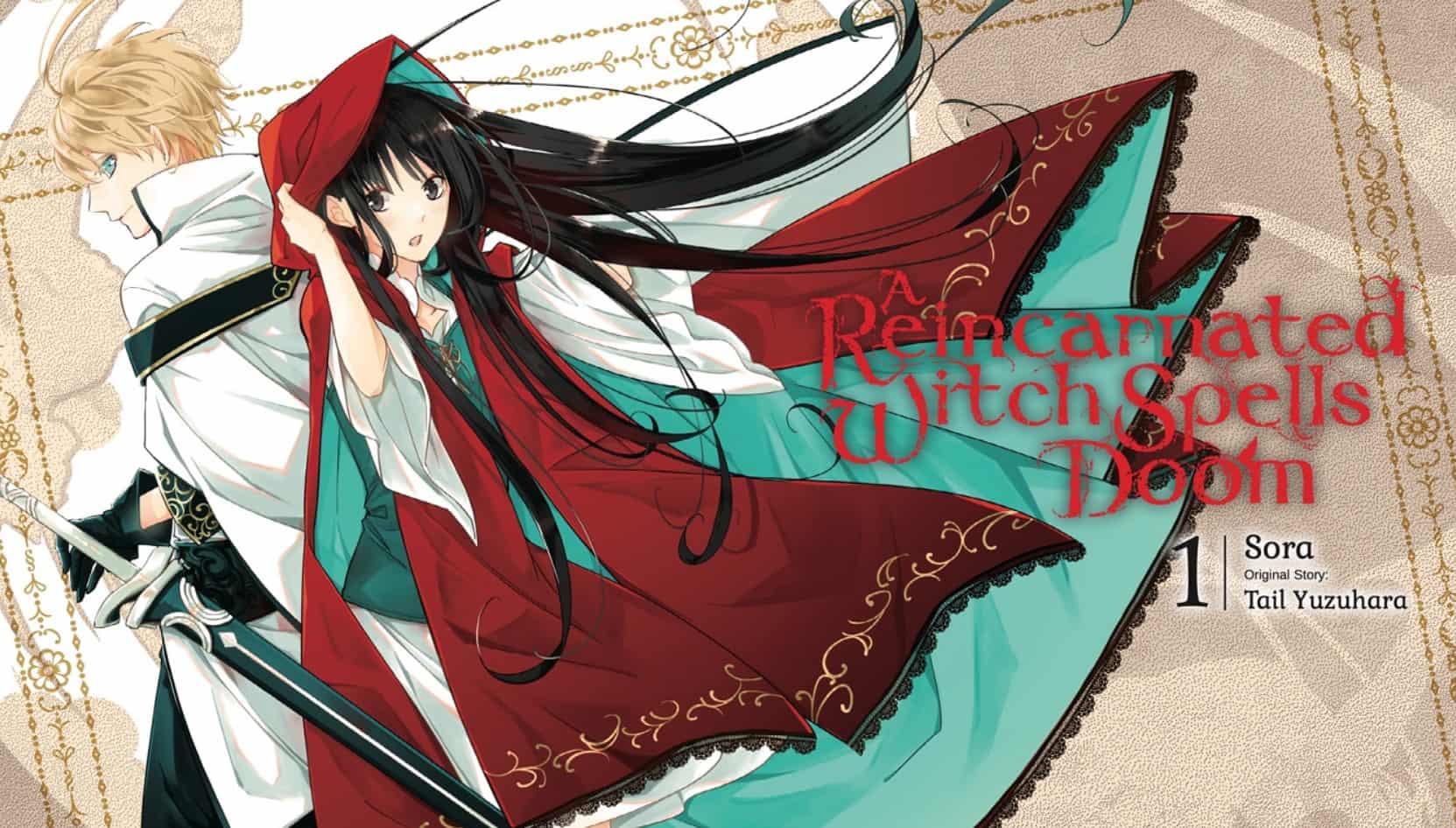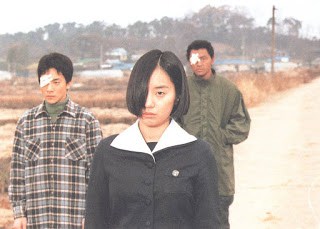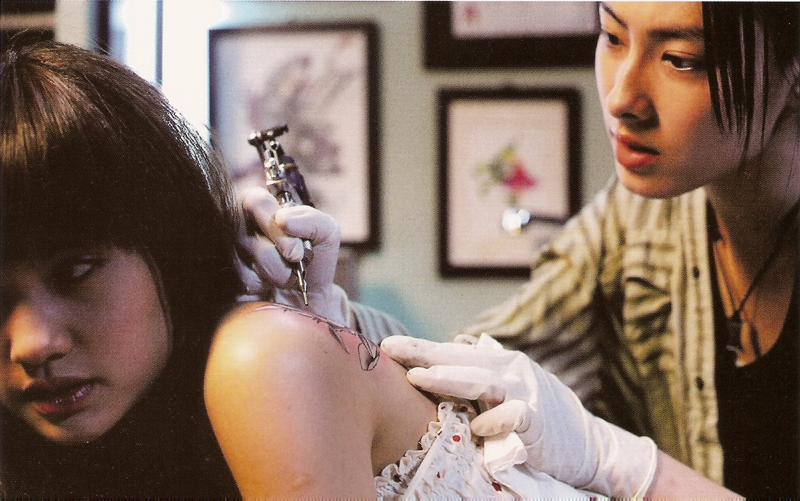“A Thousand and One Nights” was released by Mushi Productions as part of the short lived “Animerama” series, which were erotic/experimental adaptations of some classic stories. While obtaining some success within Japan, when it was attempted to be brought into American theaters, the film did not meet with much success, rendering the dubbed version lost. The production now seems to serve more as an interesting side note in film history, given it predating the cult classic “Fritz the Cat”.
Buy This Title
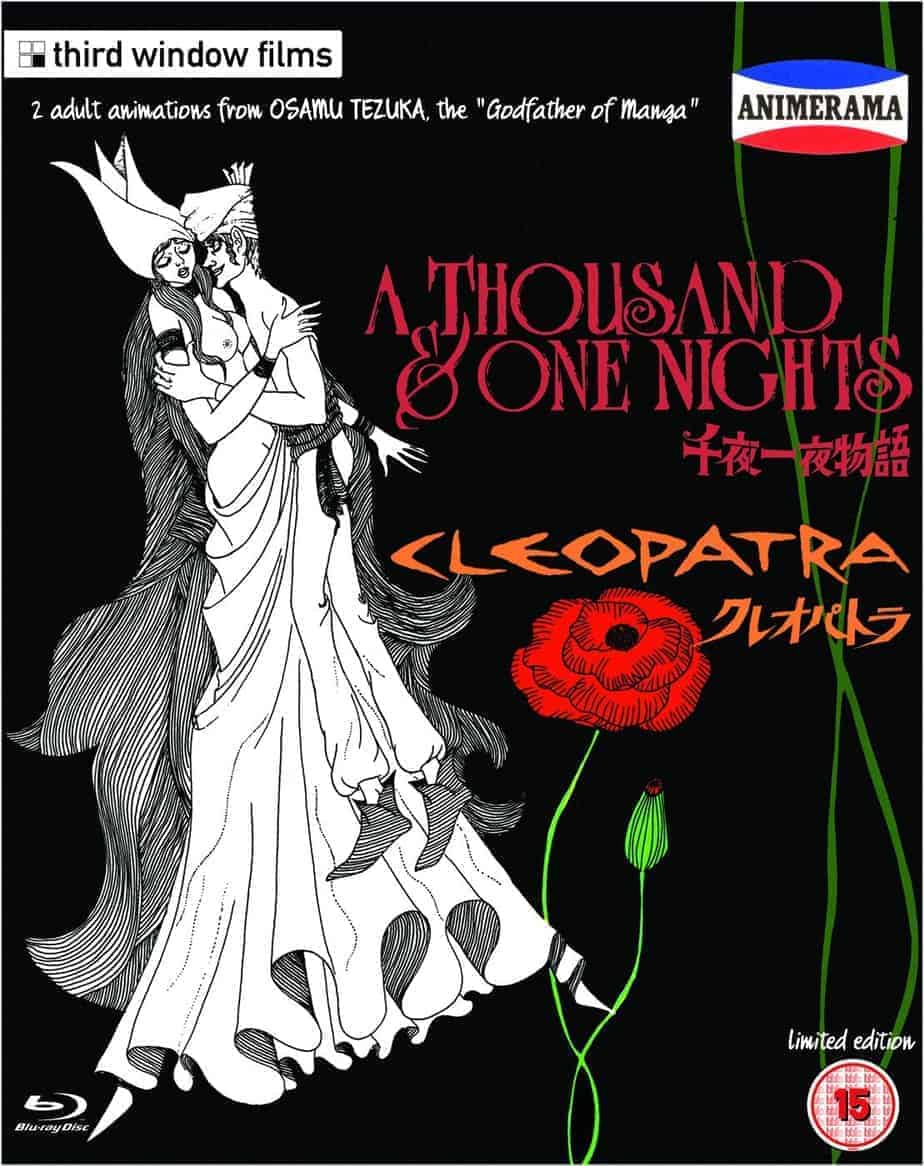
The anime is an adaptation of the Arabic collection of stories by the same title. Since it is adapted from a novel that contains various stories from different authors over a long period of time, it is hard to give a simple plot synopsis, but we can say that the narrative is tied together by the character “Aldin” who lives the life of a poor merchant before embarking on an adventure that finds him doing varying tasks, including fighting with the king of thieves, stranded on an island of beautiful women and eventually come to rule over a kingdom.

“A Thousand and On Nights” is engaging as a visual/audio spectacle, although not as experimental as the company's later titles, and there is still a fair amount of surrealism accompanied with an upbeat Japanese psychedelic/garage score. The erotic elements are pretty tame by today's standards, especially given that anime has developed so much stylistically and there is now a big market for it. For those who are interested in the title because of the exploitative aspects, the draw will be to the graphic-styling choices for the given erotic scenes, which are captivating but will not arouse in the original intended sense. The film exists in a nice space, wherein, although it is kind of dated and can't pass as modern, has a unique visual style that gives the production a timeless feel. This feat in itself shows the creative success and legacy that Mushi Productions started and evolved into the “Animerama” series.
The story itself did feel a bit tedious at times and I was not able to take much of value away from it . A lot happens within the film in just over two hours, and it is hard to really relate to anyone. With that said, it is a really good adaptation of the source and even if the idea of short segmented tales does not appeal to an audience, there is still enough to carry interest through the entire runtime. In particular, I was pleasantly surprised by the amount of humour injected into the story, not so much through the plot devices, but through the characters themselves being drawn and animated in a jovial fashion. This does feel somewhat reflective of American movies, but as a fan, I think that “Cleopatra” does not often indulge in silly animated shenanigans from western animated features. I felt it really worked well within the story, breaking up the more surreal moments, giving the title a lighter tone, especially compared to the more infamous “Belladonna of Sadness”. If this film did not contain the erotic elements it feels like it could easily be a classic family film.
With “1001 Nights” being the first film of the Animeram trilogy, you can kind of notice some of the growing pains of the concept, as it does seem to straddle the line between a western family film and erotica. When viewing the anime, I understood why it has not gained as much infamy in the cult film world as the later entries, but this does not mean that this production is lacking in any way. Being able to obtain a timeless feeling and be enjoyable while, to my tastes, transcending a lot of classical Disney productions, “A Thousand and One Nights” deserves a wider audience that will appreciate in the project.


